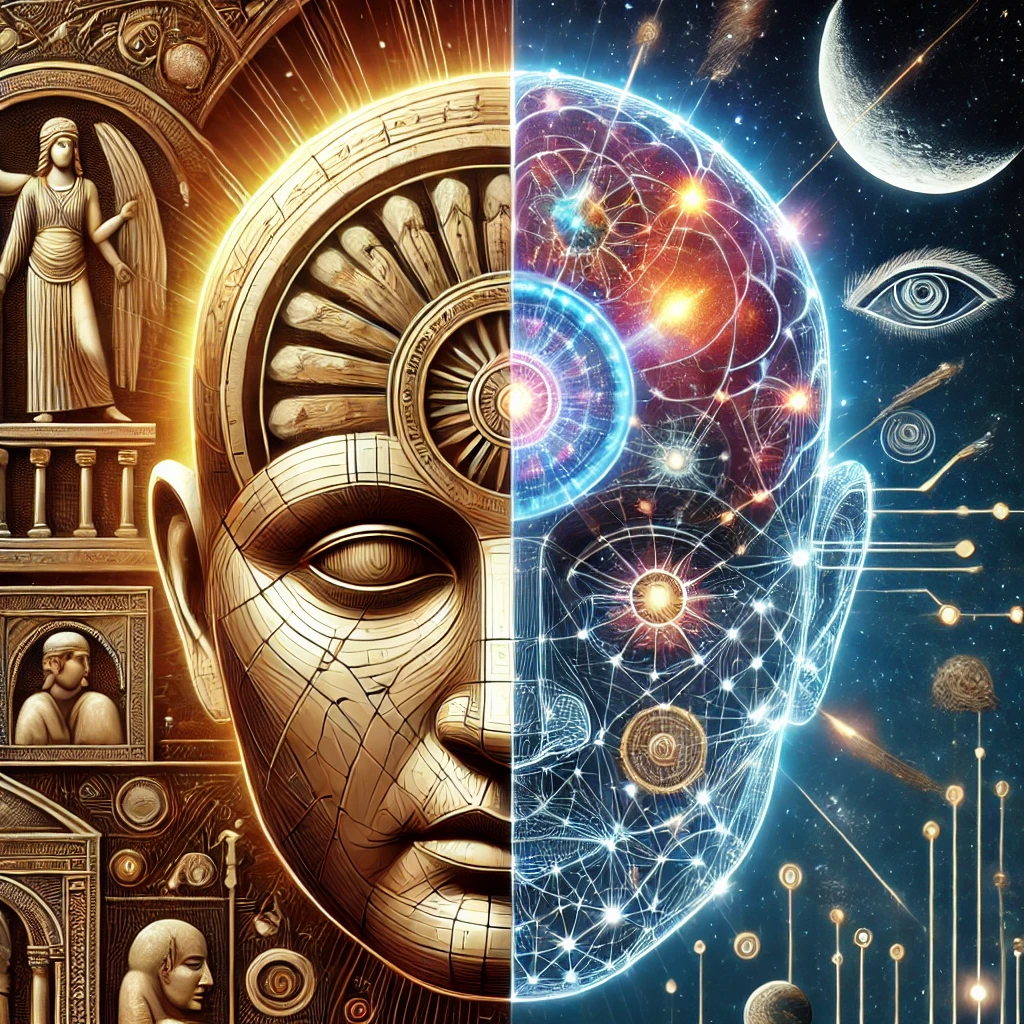The Origin of Consciousness in the Breakdown of the Bicameral Mind

Summary
"The Origin of Consciousness in the Breakdown of the Bicameral Mind" is a groundbreaking work by psychologist Julian Jaynes, published in 1976. In this book, Jaynes presents a radical theory about the nature and evolution of human consciousness. He argues that early humans did not possess consciousness as we understand it today. Instead, their behavior was guided by auditory hallucinations, which they interpreted as the voices of gods or ancestors.
Critical Reception
Jaynes' theory has been both celebrated and criticized:
- Support: Some scholars and thinkers have praised the book for its bold and innovative approach to understanding consciousness and human history.
- Criticism: Others have criticized the theory for its lack of empirical evidence and reliance on speculative interpretation of historical and literary texts.
Supporting Evidence
Jaynes draws on a variety of sources to support his theory:
- Historical Texts: He analyzes ancient texts, such as the Iliad and the Bible, to demonstrate how early humans might have experienced the world differently.
- Neuropsychology: Jaynes references studies on split-brain patients and other neurological research to argue for a bicameral mind structure.
Opposing Evidence
Critics of Jaynes' theory point to several counterarguments:
- Anthropological Evidence: Modern anthropological and archaeological evidence does not support the idea of a sudden shift in human consciousness.
- Neuroscientific Advances: Advances in neuroscience have provided alternative explanations for the development of human consciousness.
Influence
Despite the controversy, Jaynes' work has had a significant impact:
- Interdisciplinary Dialogue: The book has sparked discussions across multiple disciplines, including psychology, philosophy, anthropology, and literary studies.
- Cultural Impact: The concept of the bicameral mind has influenced various works of fiction and popular culture, contributing to ongoing debates about the nature of consciousness.